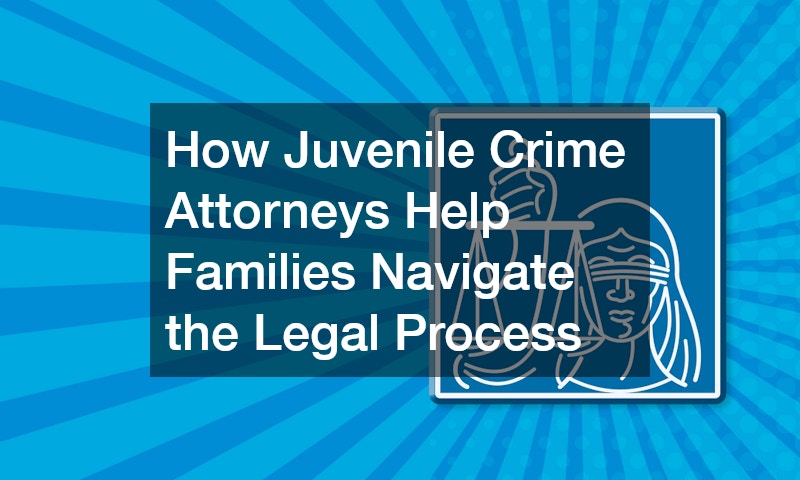When a child becomes entangled in the legal system due to alleged criminal activities, it is a challenging time for families. The juvenile justice system differs significantly from the adult system, with its own set of rules, procedures, and objectives focused on rehabilitation rather than punishment. Facing this complexity without professional guidance can be overwhelming, and that’s where juvenile crime attorneys step in. These specialized lawyers play a vital role in guiding families through the intricate legal process, ensuring their child’s rights are protected and helping them achieve the best possible outcomes.
The Role of Juvenile Crime Attorneys
Juvenile crime attorneys are legal professionals who specialize in defending minors charged with criminal offenses. They are well-versed in the nuances of juvenile law and understand the differences between the juvenile and adult legal systems. Their primary role is to advocate for their clients, ensuring their rights are upheld throughout the legal proceedings. Additionally, these attorneys work to ensure that any consequences faced by the minor are rehabilitative rather than purely punitive. By focusing on rehabilitation, juvenile crime attorneys contribute to the long-term well-being of the minors they defend.
One critical aspect of their role is to assess the charges against the juvenile and develop a defense strategy accordingly. This involves a detailed examination of the circumstances surrounding the alleged crime, as well as any evidence presented by the prosecution. Juvenile crime attorneys meticulously investigate every detail to build a strong defense, which may include negotiating plea deals or arguing for the dismissal of charges. Their expertise enables them to identify any procedural errors or violations of the minor’s rights that could benefit the case. Ultimately, their goal is to achieve a favorable outcome that considers the best interests of the juvenile.
Juvenile crime attorneys also serve as a bridge between the legal system and the families they represent. They provide much-needed clarity and understanding of the complex legal processes involved. By breaking down complicated legal jargon and procedures into comprehensible terms, they ensure families are well-informed and prepared for each step of the journey. This support is crucial for helping families cope with the emotional and psychological stress associated with juvenile legal proceedings. Through their guidance, families can navigate the legal process more confidently and with a clearer sense of the potential outcomes and ramifications.
Understanding the Legal Process
The juvenile justice system is distinct from the adult system, with the primary goal of rehabilitating and reintegrating youth offenders into society. This rehabilitative focus means the legal processes and outcomes can differ significantly from what one might expect in an adult court. Juvenile crime attorneys are experts in these differences and provide indispensable support in understanding them. They inform families about the unique procedures, from detention hearings to adjudication and disposition, ensuring they know what to expect and how to prepare. This knowledge is vital in reducing the anxiety and uncertainty that often accompany legal proceedings.
During detention hearings, for instance, juvenile crime attorneys advocate fiercely for the release of their clients back into the community. They present arguments and evidence to persuade the judge that detention is unnecessary, focusing instead on alternative measures that align with the philosophy of rehabilitation. If the case proceeds to adjudication, these attorneys prepare their clients thoroughly, explaining the potential outcomes and strategizing for various scenarios. Their thorough preparation and understanding of the system ensure that families are not caught off guard at any stage of the process.
At the disposition stage, juvenile crime attorneys take on a crucial role in advocating for suitable rehabilitation measures. They propose alternatives to incarceration, such as probation, community service, or treatment programs, that align with their clients’ needs and circumstances. Their arguments at this stage are vital in ensuring that the minor receives appropriate guidance and support, rather than being thrust into environments that may be detrimental to their development. Moreover, by emphasizing rehabilitation over punishment, juvenile crime attorneys help steer young offenders towards a path of personal growth and societal contribution.
Supporting Families Through Challenges
The involvement of a child in criminal activities brings emotional turmoil to families, complicating their ability to cope with the legal process. Juvenile crime attorneys offer essential emotional and moral support in addition to their legal services. By providing consistent updates and realistic expectations, they help families manage stress and anxiety associated with legal uncertainties. These attorneys also take time to listen to the concerns and fears of the families, ensuring they feel heard and supported throughout the process. Their presence offers reassurance, enabling families to focus on supporting their child through this challenging period.
Juvenile crime attorneys often connect families with counseling services and community resources that can aid in the rehabilitation process. These resources can address underlying issues such as substance abuse, mental health concerns, or family conflict that may have contributed to the juvenile’s delinquent behavior. By promoting a holistic approach to rehabilitation, attorneys help ensure their clients receive comprehensive support that extends beyond the courtroom. This broader perspective not only benefits the accused juvenile but also contributes positively to family dynamics and community well-being.





